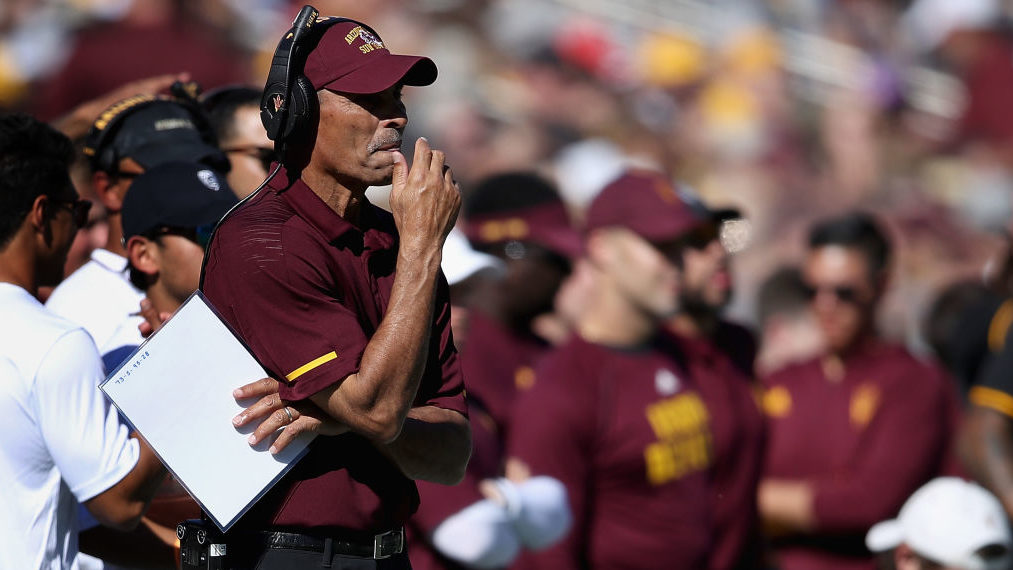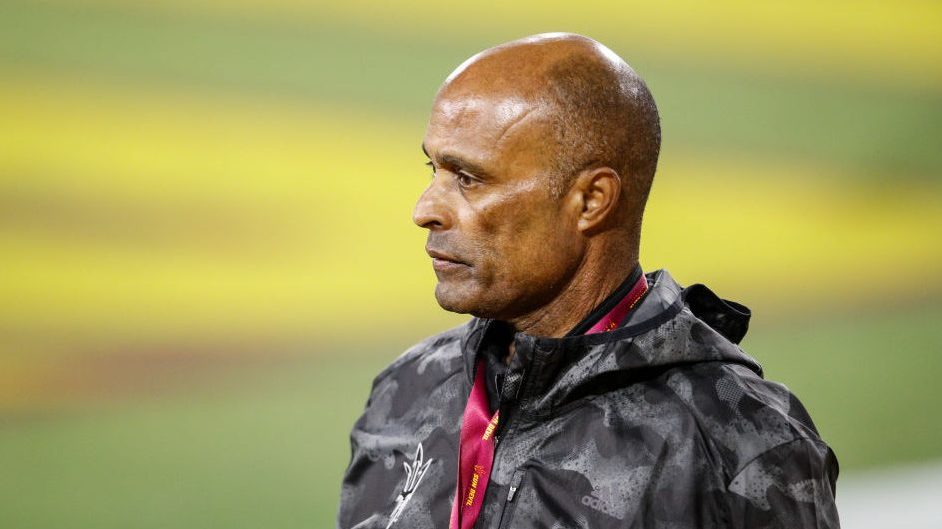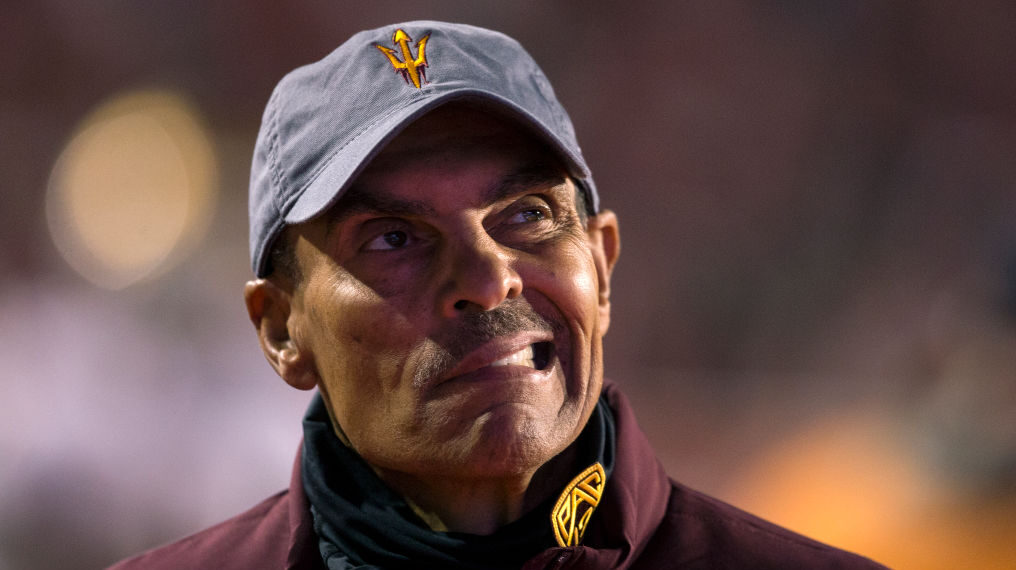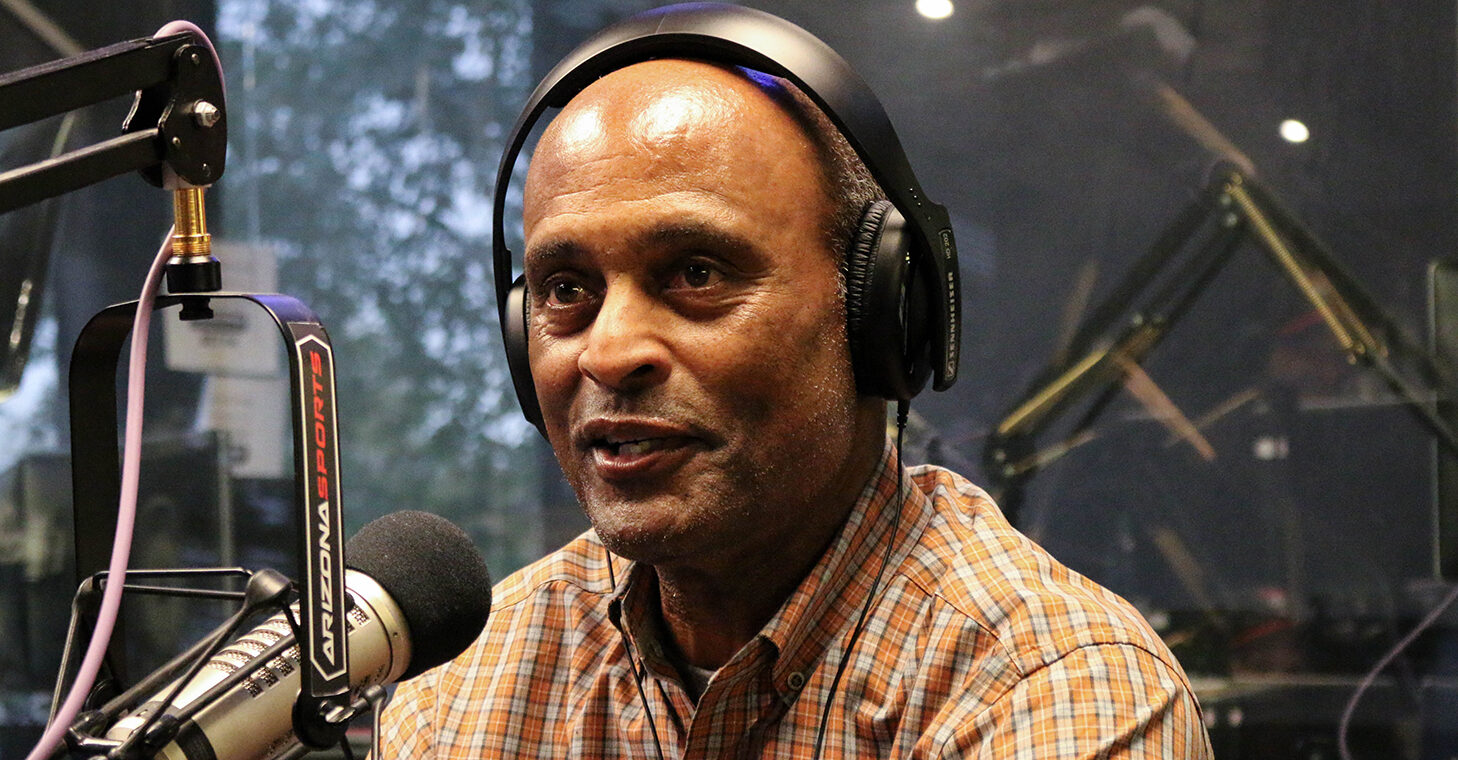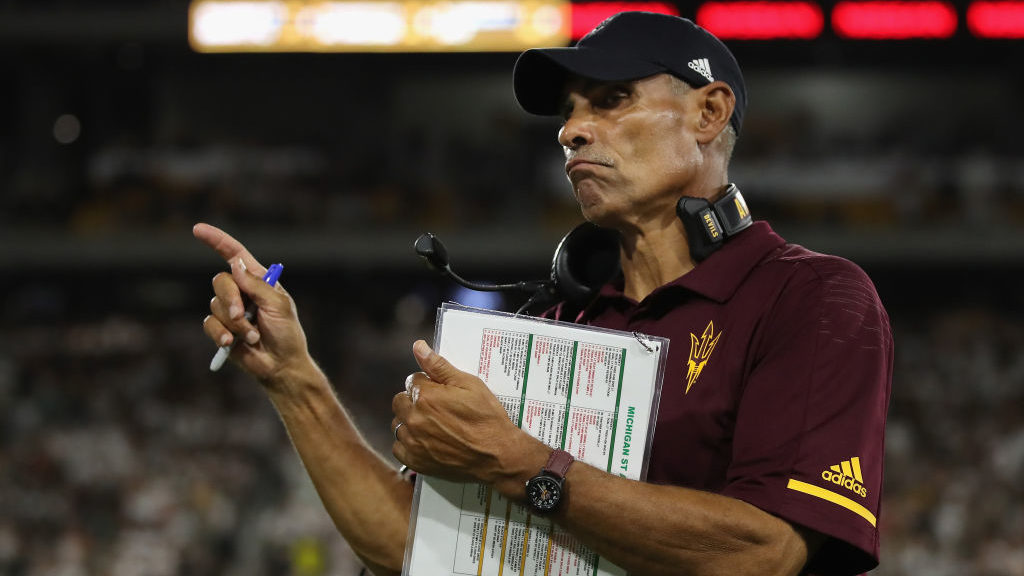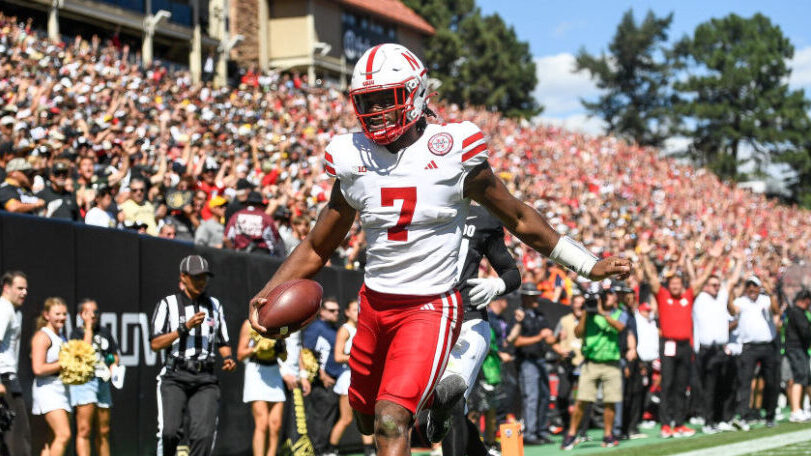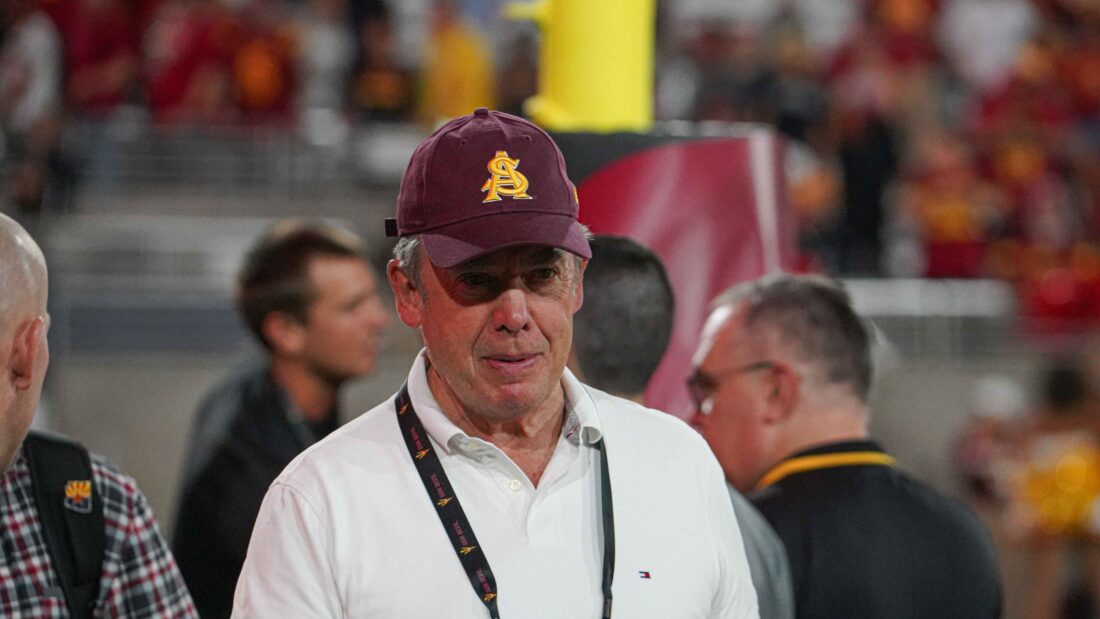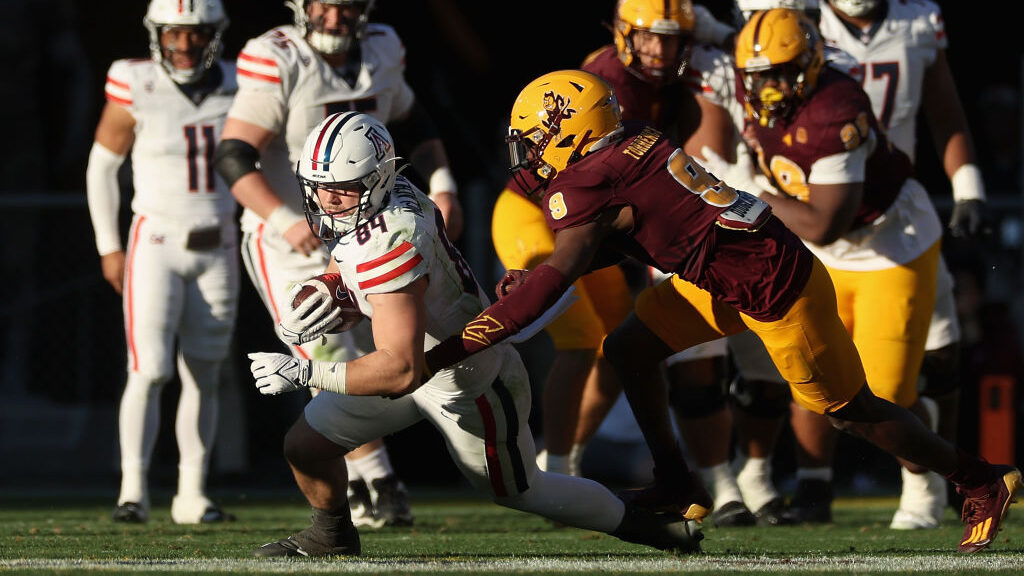NCAA levies penalties, partially rules on Arizona State recruiting violations under Herm Edwards
Apr 19, 2024, 9:55 AM | Updated: Apr 21, 2024, 12:25 am
Arizona State’s football program will enter a four-year probationary period, pay a fine, vacate records and see scholarship reductions after the NCAA found Level I recruiting violations under former coach Herm Edwards’ staff.
The NCAA announced those penalties Friday but added it has split the case to allow the school to move forward. The Sun Devils have already served a 2023 bowl ban that was self-imposed.
ASU and four former employees reached an agreement with a Committee of Infractions panel after it was found they broke recruiting rules during the COVID-19 dead period in 2020. The NCAA also confirmed those involved in-person recruiting, “recruiting inducements, impermissible tryouts and tampering.”
Two more individuals are protesting via a written record hearing.
ASU’s recruiting restrictions will limit when the current staff can contact recruits and host them on visits, reports SunDevilSource.com’s Chris Karpman.
The NCAA additionally said the school has disassociated an involved booster for five years as part of the findings.
Edwards was found to have violated responsibility rules, Karpman adds he received a show-cause penalty that limits his NCAA employment for at least three years. and several individuals did not cooperate in the investigation. The NCAA and ASU, which is without a permanent athletic director after then-AD Ray Anderson resigned in November, agreed the school did not properly monitor its football program.
“The COVID dead period rules were created not only for the sake of competitive equity but for the safety and well-being of prospective and enrolled student-athletes and their families,” ASU president Michael Crow said in a statement. “ASU is disappointed and embarrassed by the actions of certain former football staff members who took advantage of a global pandemic to hide their behavior.
“Integrity is a core value of everything we do at Arizona State University and that includes Sun Devil Athletics,” Crow added. “ASU took quick and decisive action upon learning of potential violations and cooperated fully with the NCAA from start to finish in a way that the enforcement staff described as a ‘model for all institutions to follow.'”
After that hearing, the NCAA will release its final decision on the case that led to Edwards’ firing.
That firing in 2022 followed the school parting with associate head coach, defensive coordinator and recruiting coordinator Antonio Pierce, offensive coordinator Zak Hill, plus assistants Prentice Gill, Chris Hawkins and Adam Breneman.
Pierce is one of the two individuals protesting the case, reports Karpman.
“It is clear from the level of the penalties imposed and from the comments from the committee that ASU’s conduct during the investigation and its culture of compliance helped the university mitigate penalties that most certainly could have been significantly higher and would have impacted the program for years,” senior vice president and interim ASU athletics director James Rund said in a release.
The individuals who agreed with the NCAA enforcement staff about the findings agreed or did not contest show-cause orders that will keep them from being involved in college athletics for three to 10 years, according to the NCAA.
“Arizona State’s cooperation throughout the investigation and processing of this case was exemplary, and the cooperation began with the leadership shown by the university president,” said Jason Leonard, executive director of athletics compliance at Oklahoma and chief hearing officer for the Committee on Infractions panel. “The school’s acceptance of responsibility and decision to self-impose meaningful core penalties is a model for all schools to follow and is consistent with the expectations of the NCAA’s infractions program.”


